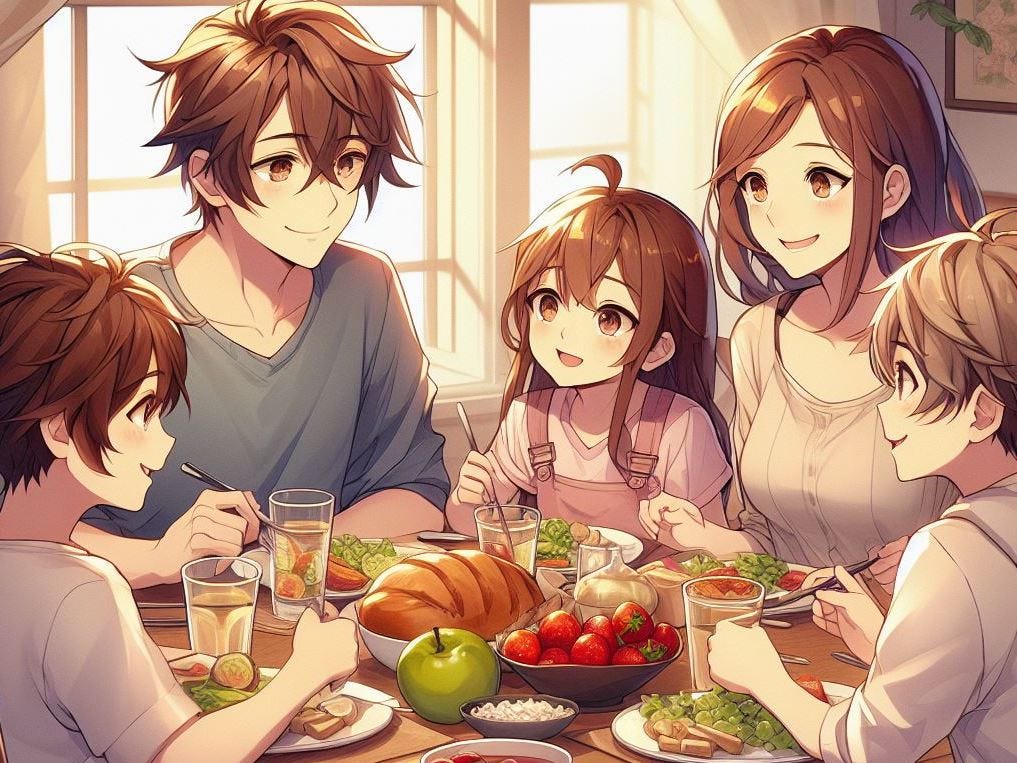Don't Skip Family Dinner Time
The benefits are too big to ignore.
Not all time together is equal, and one of the most important times of the day for your family should be dinner time. A family that eats together at least five nights per week can withstand many troubles.
But nowadays, roughly 70% of meals in America are eaten outside of the home.
Many families try to replace dinner time with other things. Maybe it’s sports, and almost every night, there is a game to attend. The parents make it a family affair. Dinner is picked up on the way home, devoured in the car, or eaten at the event.
They will excuse eliminating time around the dinner table by saying that the family is still spending time together. In fact, they spend more time together than most of their neighbors!
But not all time is created equal. At games, sitting on bleachers, are families really “together?” How many are on their phone? How many are so invested in what’s going on in the field that everything else fades around them?
Dinner around the table is unique. It is irreplaceable. Around the table, you create a shared culture and grow closer together. Around the table, kids learn to hold a conversation. Around the table, kids learn basic manners. Around the table, days are shared, jokes are told, and memories are solidified for the next generation.
Time spent together breaking bread, especially if done regularly, forges bonds between the participants.
Without the magnet of the table, members of the family bounce all over the place, and any contact is accidental.
Do not neglect this. Dinnertime around the same table will help cover a multitude of other sins. Make it a priority.
Here are more benefits:
Children gain an increased vocabulary relative to their peers.
80% of teenagers claim family dinner is the time they are most likely to converse with their parents.
For both boys and girls, family meal environments at age 6 correlated with fewer behavioral problems and better academic performance by the time they were 12.
Teens are less likely to engage in sexual activity.
Both parents and teens are less likely to experience depression.
Kids are twice as likely to have an excellent relationship with their father and with their siblings.


